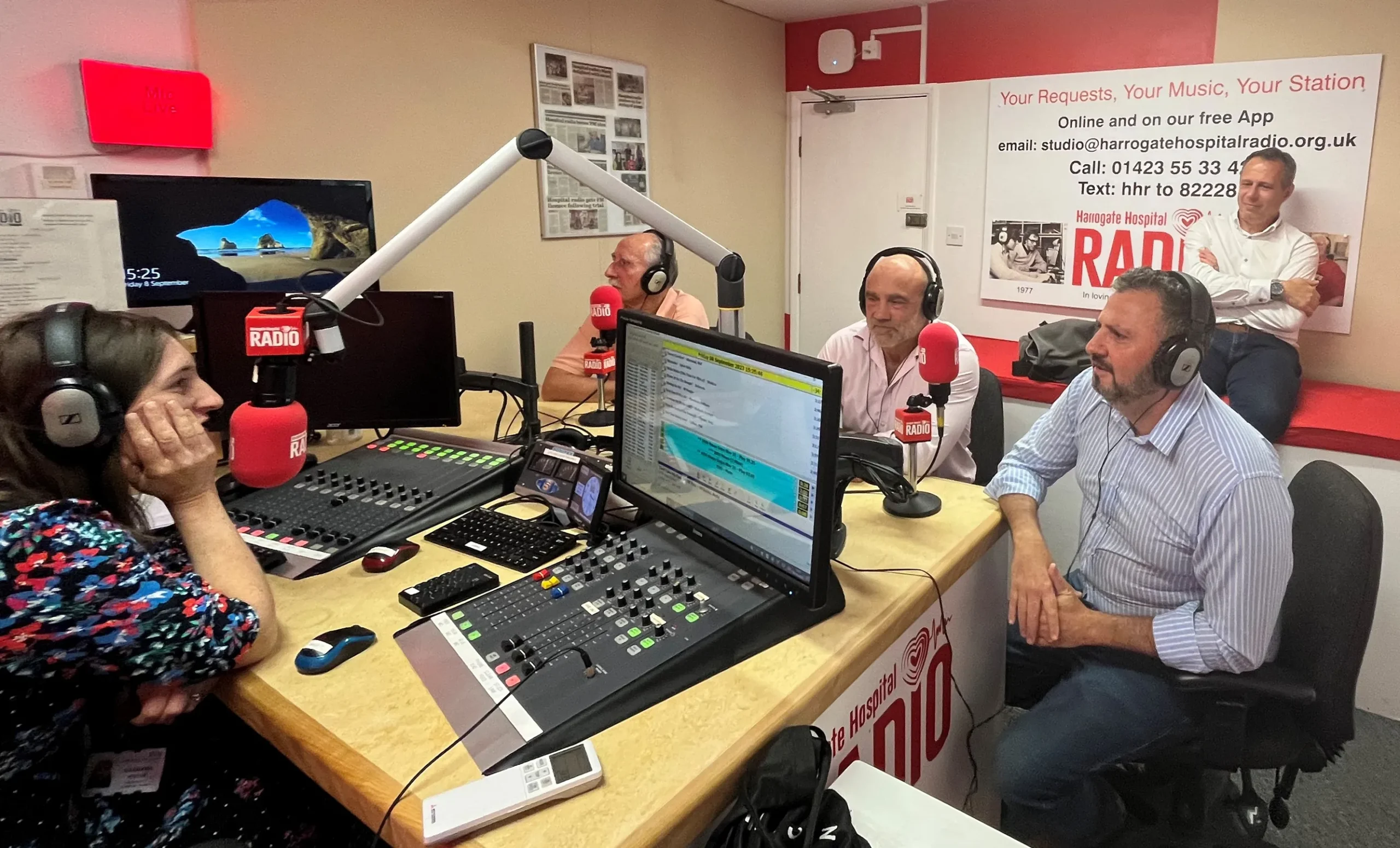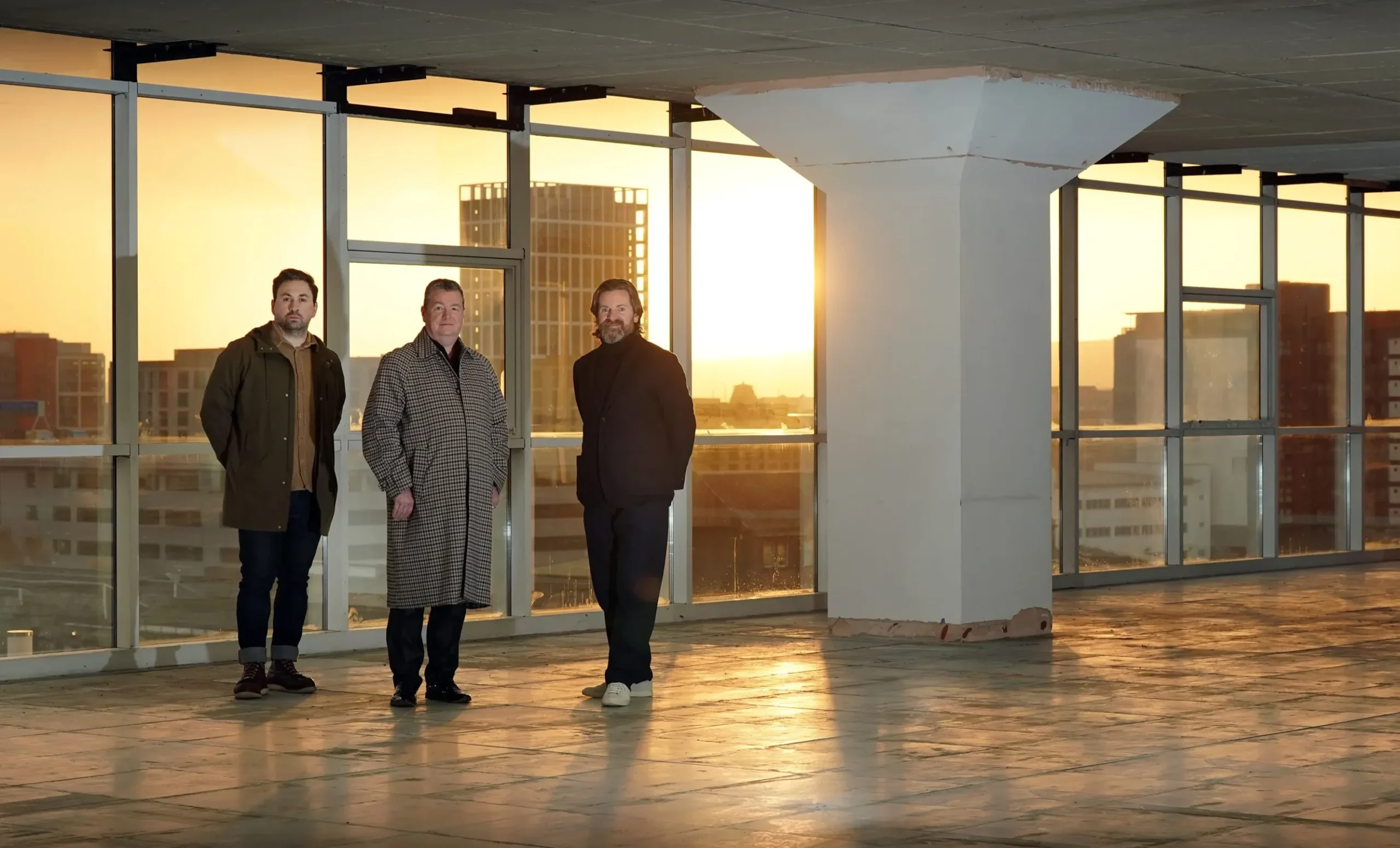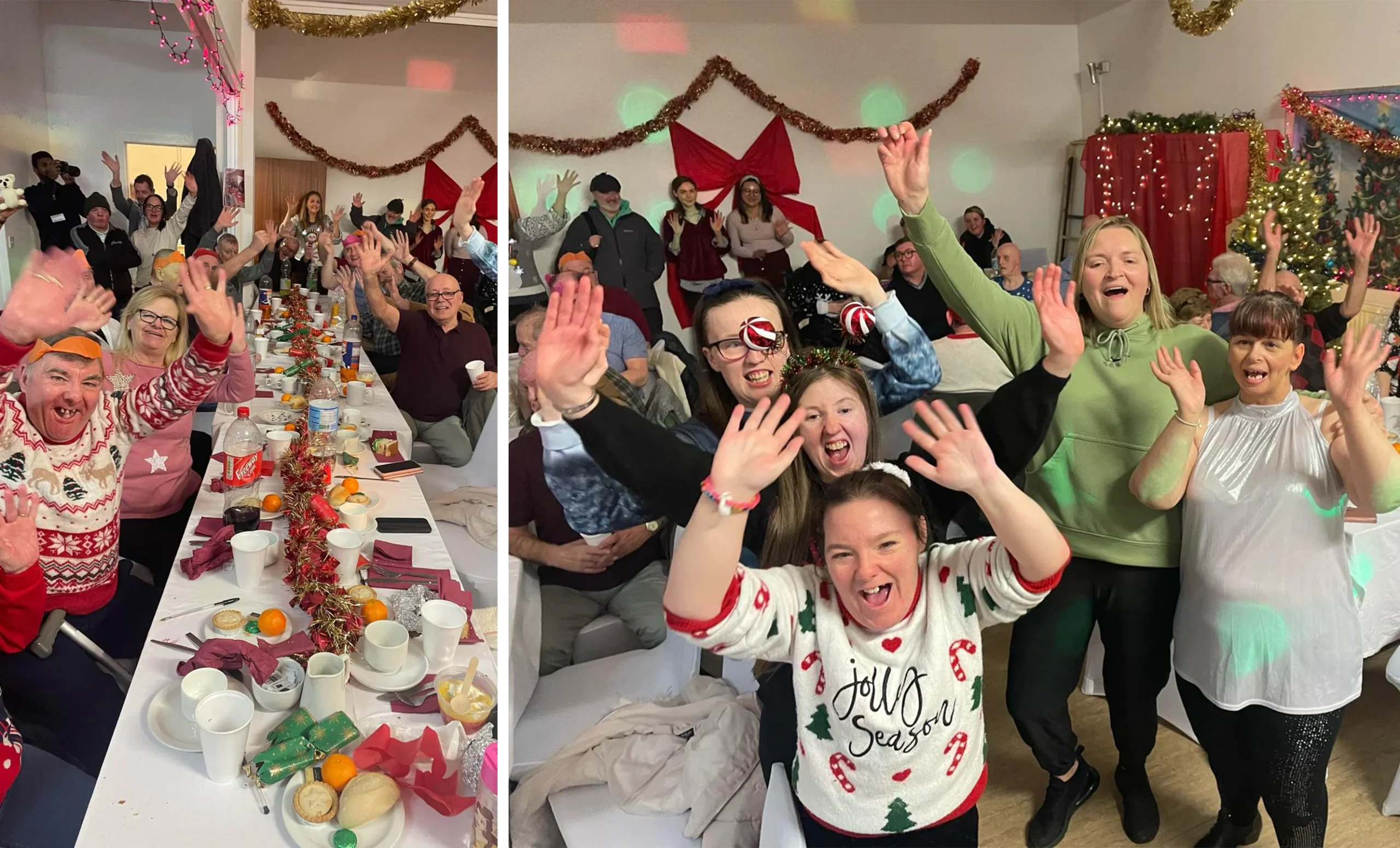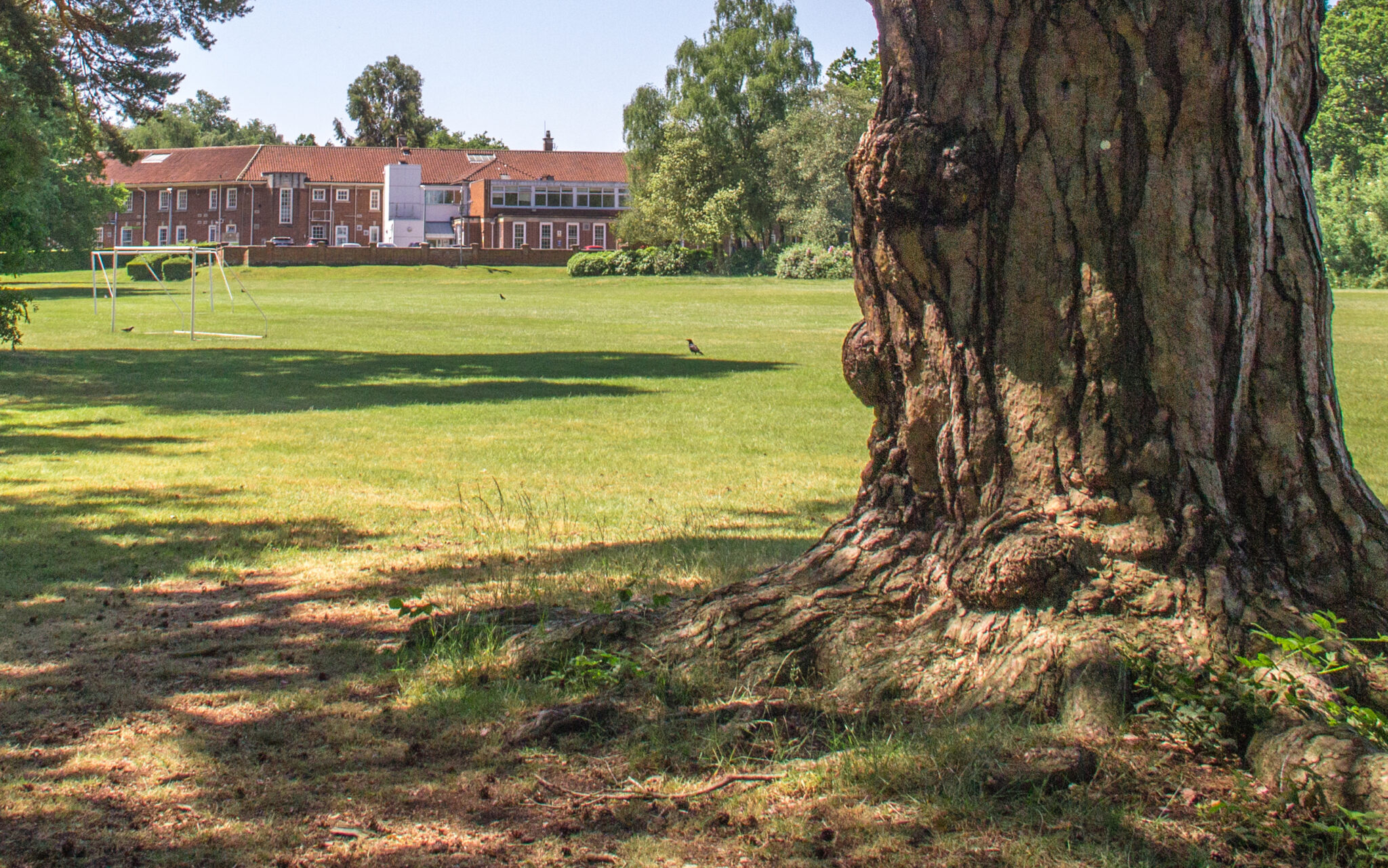Harrogate Hospital Radio Interview DSSR's Matthew Day
19 January 2024
Harrogate Hospital Radio Interview DSSR's Matthew Day
Scroll down to read more
Harrogate Hospital Radio Interview DSSR's Matthew Day
Recently, DSSR Regional Director Matthew Day was interviewed by Oli at Harrogate Hospital Radio who was looking to learn more about DSSR and our work in the healthcare sector.
As part of our work to support local charities, DSSR is a proud sponsor of a four-hour radio show every Friday, for a full year, at Harrogate Hospital.
You can read the transcript below or listen to the audio recording of the interview directly below this text.
Oli: So, I’m here with Matthew from DSSR Consulting Engineers. Hello and welcome.
Matthew: Hello, it’s brilliant to be with you. Thank you very much.
Oli: Lovely to have you in the studio with us. So, you’re going to tell us a little bit about what you do and what you do for hospitals—which is fantastic work, I must say.
Matthew: Well, I mean, much like yourselves, everyone is working towards giving the best possible service to the health service and to the hospitals. So yes, it’s really good to be able to come and support you and share a little bit of what we do.
Engineering is one of those things that blinds a lot of people, and they fall asleep very quickly when we start talking about it. In terms of healthcare [for DSSR] works on operating theatres, critical care units, wards, and specialist rooms, so that we can enable the clinicians to deliver the healthcare that we all so desperately need and benefit from. That’s fundamentally what we do.
Oli: Absolutely. What areas do you sort of specialise in? What is it that you really design?
Matthew: Well, to be honest, it’s any department. At the lower level, you’ve got your outpatients’ cubicles and things like that, but then up at the upper end, you’ve got your aseptic pharmacies, production pharmacies, operating theatres, isolation rooms, and critical care. We cover the whole set, really.
“My favourite part is—by far and away—getting to interact with some of the most senior clinicians in the country.
“To be able to develop designs to give them what they need and evolve them as their thinking changes: that is by far and away the best bit.”
Oli: I understand. And how does that process work? How do you start that? Is it from when you get an e-mail that says we need this?
Matthew: Well yes, it can vary. I mean, [the best process] is when we get the phone call from the Trust to say ‘We’ve got a little bit of money, and we would like to do this new department’. We then come and meet the clinicians, and sit down with them to understand what they’re trying to achieve, and how they would like to be able to work. Once we’ve understood that information, it’s time to develop the engineering systems to actually deliver that—and that’s a lovely way to do it.
We’ll get to work alongside an architect, and a structural engineer if we’re building something new, or to develop that into a design which then a contractor will build and deliver. Then it gets handed over to the clinicians and, hopefully, gives them everything to which they were aspiring.
I mean, that’s the perfect model. More often than not, it’s ‘we’ve got to do this’, and ‘we’ve got to make it happen yesterday, and there’s no money, and it’s got to be done by the end of the financial year’, but, of course, that is what the principles are.
Oli: Absolutely. And what’s your favourite part of that process? Surely there are some big wins in there as well?
Mathew: My favourite part is—by far and away—when you get to interact with the clinicians. We get to work with some of the most senior clinicians in the country. We’ve got guidance that’s been written relatively recently, but [senior clinicians] were at the forefront where their thinking was changing almost by the day. So to be able to respond and to develop our designs, and to develop these designs to give them what they need to evolve them as their thinking changes: that is by far and away the best bit.
[Another favourite part is] understanding what they’re trying to achieve and making it possible because, at the end of the day, we’re all the beneficiaries; if we’re getting better healthcare because they’ve got the systems that they need, we’re all winners, aren’t we?
Oli: Absolutely, yes. And you work all over the country? Is that right?
Matthew: Yes, very much so. We have three offices as a company. We have a Scottish office up in Glasgow, we have a Manchester office and a Harrogate office. That doesn’t mean that Harrogate looks after the East, Manchester looks after the West, and Glasgow looks after Scotland. All of the offices, for example, are working in London. Harrogate is working in Stafford and in Liverpool and is actually just handing over at a new unit in Salford—which may seem bizarre from the outside because it’s literally over in Manchester.
Equally, our Manchester office is working over in this side of the country. For example, they’re working at Sheffield. It’s all about relationships. Our approach is dictated by where we have relationships, and that’s how we work.
“I was at Alder Hay Children’s Hospital recently. It is a building full of ill children, yet it is still one of the most wonderful places to be; it feels peaceful, it feels tranquil, it feels like a healing environment.
“To see that work as a building is just fantastic, and to see that the Clinicians see the value of that as it helps them do their jobs [is rewarding].”
Oli: Of course. Simply fantastic. So, it really is key work that you do and it’s right on the front line as well, which is very exciting stuff.
Mathew: It can be sometimes a little bit too close to the front line when you’re having to put on full PPE or scrub to go into an operating theatre to observe and see what they actually do—but yes, it makes a difference and I think that’s, as engineers, what we want. That’s where we get our kicks from. Engineers are all about solving problems and making things happen. That is what we love about the jobs that we have.
With the NHS, there is constant work going on. Just look at the budgets that the government are spending on hospitals and healthcare. Healthcare is constantly moving; what we did 10 years ago is no longer applicable because healthcare practices have changed, and so we have to keep up to speed with that, and we have to understand what we’re doing so that we can evolve it to keep up with the Clinicians and clinical practice.
Oli: Is that evolution quite exciting? Do you enjoy that evolution?
Matthew: Very much so. One of the huge challenges of the pandemic was that we were literally sent home on March 24th and the phone started ringing off the hook. All of our NHS clients say, quite rightly, ‘we need some additional critical care beds’, ‘we need more oxygen’, ‘we need more ventilation’, ‘we need more power – and how can we get it’?
Suddenly, we’re working remotely and the thinking is changing very, very rapidly. The thinking from the start of the pandemic to the end of the pandemic changed quite significantly. We all were on that learning journey together, the engineers and the clinicians, as we sought to develop the best possible solutions to keep everyone safe.
Oli: Absolutely.
Matthew: The highlight of all of this then has, in a way, been that the pandemic has created a lot of very inspiring projects in many ways, and it’s managed to sort of evoke that change within the NHS.
“The ‘can do’ attitude of everyone, what is possible when everyone is on-site to deliver and are on the same page to make it happen: those are the best days, definitely!”
Oli: There’s a lot been going on, as you’ve said, a lot of projects have happened. Have they created more innovation? Have they been more interesting projects as such?
Matthew: They’ve been challenging, particularly with the speed of change that was required. We saw this in the Nightingale hospitals that they had to build. The speed at which those were constructed and designed was absolutely phenomenal.
Matthew: I’ve been in this industry now for 33 years and I think in each project—there are certain pet projects that are special. I was at Alder Hay Children’s Hospital yesterday, a building full of ill children, that is one of the most wonderful places to actually be; it feels peaceful, it feels tranquil, it feels like a healing environment. To see that work as a building is just fantastic, and to see that the Clinicians see the value of that as it helps them do their jobs.
We work down at UCLH in central London, one of the most acute hospitals in the country where they are constantly at the forefront of anything that is going on anywhere in the country. As we are working with those Clinicians, we’re able to disseminate what we learn there to other Trusts across the country who will invariably follow suit further on down the line.
No two days are the same, that’s for sure.
Oli: That’s fantastic, which must make it a really interesting job to have. What would you say was the absolute best day you’ve had in your job? If there was one day you had to pick. What happened?
Matthew: One day? That’s impossible, I don’t think I could say! There would be favourite projects. I don’t think I could pin it down—over 33 years, there are an awful lot of days!
I think that there are favourite projects. [Most recently] some of the things we delivered during the pandemic because of the way everyone knuckled down. All the contractual things that caused us problems before the pandemic were irrelevant. Everyone was on-side. It was about how we got through this, and how we made it and made it happen as fast and as well as possible.
For example, we delivered a lot of work down at UCLH. We converted an entire floor to increase their critical care capacity. We re-developed a ward at King George’s to gain additional critical care capacity.
I think that it was the ‘can do’ attitude of everyone and what is possible when everyone is actually really on-site to deliver. That’s from Clinicians, Clients, Architects, Contractors. It’s everyone is on the same page to make it happen. Those are the best days, definitely!
Oli: Absolutely. Fantastic. Well, thank you so much for coming in. It’s been really interesting to hear all about what you guys do. It’s fascinating, it genuinely is. This is when engineering is so key, I think that is inspirational.
Matthew: You’re most welcome. Thank you for that. No problem at all. Being here in the hospital, I think people see it a lot more. The impact of the work that we do. which is really important.
Oli: Matthew from DSSR, once again thank you.
IoT Innovation Hub for Smart Things Accelerator Centre (STAC)
19 January 2024
Designing building services for an IoT Innovation Hub on behalf of Smart Things Accelerator Centre (STAC)
Scroll down to read more
Helping Smart Things Accelerator Centre (STAC) to "transform Glasgow into Europe’s largest smart things and IoT innovation hub"
An exciting new venture is looking to transforming Glasgow into Europe’s largest smart things and IoT innovation hub, centred around a new £2.5 million public and private sector investment: a 250-desk state-of-the-art facility named “thebeyond” at SkyPark in Glasgow.
DSSR is excited to be part of the design of the new development, having created the initial building services design for ‘thebeyond’ facility. We will share future updates on the new IoT Innovation hub as it progresses.
The venture is a partnership between the UK Government, Glasgow City Council, and the Smart Things Accelerator Centre (STAC), with the intent of making Glasgow a frontrunner in developing technologies over the coming decades, spanning drones, robots, AI, IoT, nanotech, medtech, and cleantech, revolutionising industries while yielding substantial economic, social, and environmental impact.
Building on STAC’s success to date, projections are for Glasgow to evolve into an innovation leader with a focus on industrial, lifestyle, health, and sustainability technologies. Through the partnership, Glasgow will become a test bed for homegrown innovations via STAC.
The initiative is supported by industry executives with decades of experience from leading organisations including Dyson, Plexus, Meta, Blackberry, Motorola, and Volvo Cars.
Councillor Ricky Bell, Deputy Leader of Glasgow City Council: “This collaboration will help Glasgow become a leading technology-driven city, with our services and buildings powered by homegrown innovation to the benefit of everyone who lives, works and studies here.
“We will empower Glasgow’s start-ups to hone their technologies here and then compete internationally, enhancing our position on the global tech stage and bringing a great number of new jobs and careers in this sector.”
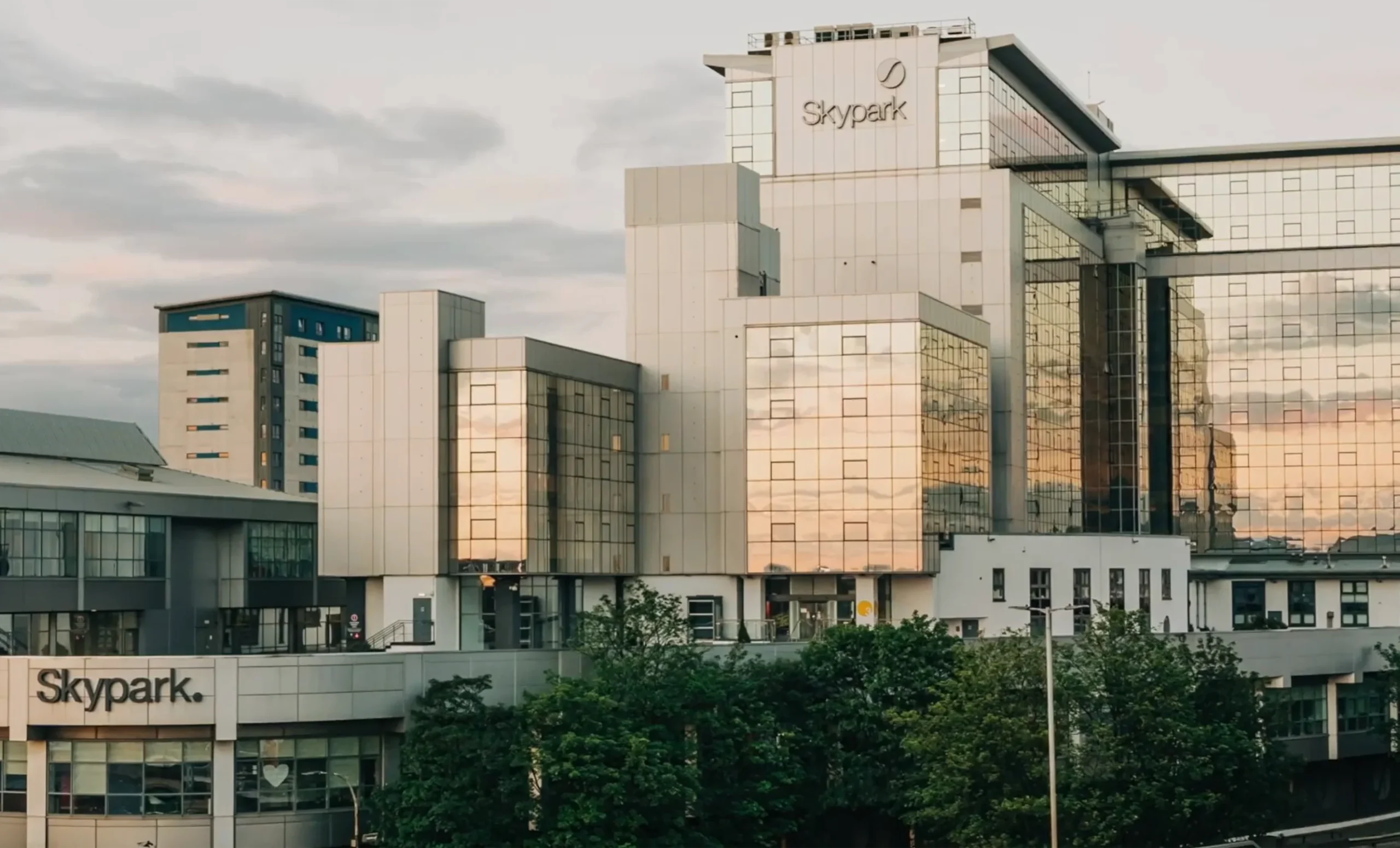
DSSR Sponsor Christmas Dinner for Local Charity 'Possobilities'
16 January 2024
DSSR Sponsor Christmas Dinner for Local Charity 'Possobilities'
Scroll down to read more
DSSR Sponsor Christmas Dinner for Local Charity 'Possobilities'
DSSR is proud to sponsor the ‘Possobilities’ charity in the North of Glasgow. As part of our work with the charity, this Christmas we sponsored the delivery of 50 Christmas dinners for their members, either at the centre or delivered to their homes.
‘Possobilities’ works closely with the community, offering various forms of support to disabled and vulnerable people in the local area through social groups and community-led assets in a welcoming environment.
Colleagues from the DSSR Glasgow office also organised a large Food Bank collection which was dropped off at the centre ahead of Christmas, along with 50 selection boxes that the charity was delighted to receive.
We are grateful to be able to make such a significant difference in the local community, particularly at a time when people need the most support and community spirit.
DSSR Renews Support for NHS Forest
11 January 2024
DSSR renews annual commitment to NHS Forest
Scroll down to read more
DSSR Renews Commitment to NHS Forest
We are very proud to announce that we have renewed our ongoing commitment to the NHS Forest for 2024 by sponsoring 500 trees for yet another year. The NHS Forest is an initiative coordinated by the Centre for Sustainable Healthcare, a charity organisation.
At DSSR, we understand the need to integrate nature’s contributions into healthcare planning, and we appreciate the positive health benefits created by these invaluable natural assets which advance the sustainability and health objectives of the NHS.

Established in 2009, the NHS Forest aims to:
- improve the health and well-being of staff, patients and local communities through increasing access to green space on or near NHS land
- spark projects that bring together professionals and volunteers to use new and existing woodland for art, food crops, reflective or exercise spaces and to encourage biodiversity
- highlight innovative ideas to encourage the use of green space for therapeutic purposes, including social prescribing
The recent ‘NHS Trees and Woodland Valuation Pilot Study’ aimed to quantify and assess the contribution of trees to ecosystem services on NHS estates, finding that they offer significant value, totalling thousands of pounds each year.
It showed how trees and woodlands offer a range of invaluable ecosystem services. These include carbon storage and sequestration, air pollution removal, flood regulation, temperature regulation, and noise mitigation. The total estimated annual value of these services across the four sites in the pilot study was a substantial £82,531.
Our contribution last year resulted in new trees planted at Milnrow and Newhay Medical Centre in Rochdale. This new site was designed to the highest environmental standards, and the local community enjoyed a planting day for the NHS Forest trees–despite rainy weather. Pupils from three local schools were involved in planting an orchard, hedgerows, and woodland.
